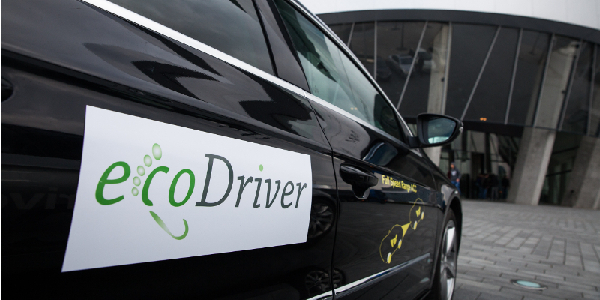Eco-driving systems help cut fuel costs, emissions
 0 Comment(s)
0 Comment(s) Print
Print E-mail Xinhua, March 25, 2016
E-mail Xinhua, March 25, 2016
 |
|
Cars of the future which advise how to drive more safely and economically could bring significant cuts in fuel consumption and emissions.?[Photo/University of Leeds] |
Cars with eco-driving systems installed can advise drivers on how to drive more safely and economically, and test results have shown that it could bring significant cuts in fuel consumption and emissions, according to a press release published Thursday by the University of Leeds.
The ecoDriver project, led by the Institute for Transport Studies at Leeds with industry partners including BMW, Daimler, CRF (Fiat-Chrysler) and TomTom Telematics, showed that drivers of cars which had such systems installed saved an average of 4.2 percent in fuel and CO2 emissions, with an even higher saving of 5.8 percent on rural roads.
Eco-driving systems offer visual guidance to drivers, usually built in to satellite navigation systems or via smartphone apps. The ecoDriver project aimed to support drivers of different vehicles in conserving energy and reducing emissions. The prototypes developed in this project encourage drivers to adopt green driving behavior: drivers receive eco-driving recommendations and feedback adapted to them and to their vehicle characteristics, according to Leeds.
The findings are the aggregated results of on-road trials in 2014-2015, which involved nine separate trial locations in seven EU countries, including around 200 drivers, 61 vehicles, 11 different systems and a total of 340,000 km driven.
"The results from our trials with a large range of eco-driving systems indicate substantial fuel and energy savings can be gained when drivers are given precisely tailored advice on the best speed and gear for cutting fuel costs and emissions, as well as foresight of how to drive when approaching a particular road or traffic situation," said Professor Oliver Carsten from Leeds, who is the co-ordinator of the ecoDriver project.
The ecoDriver systems proved to have strong positive impacts on speed, time headway, and accelerations and decelerations. This should translate into fewer and less severe crashes.
"The systems also deliver important safety benefits by encouraging drivers to reduce their speed," said Carsten.



 Add your comments...
Add your comments...

